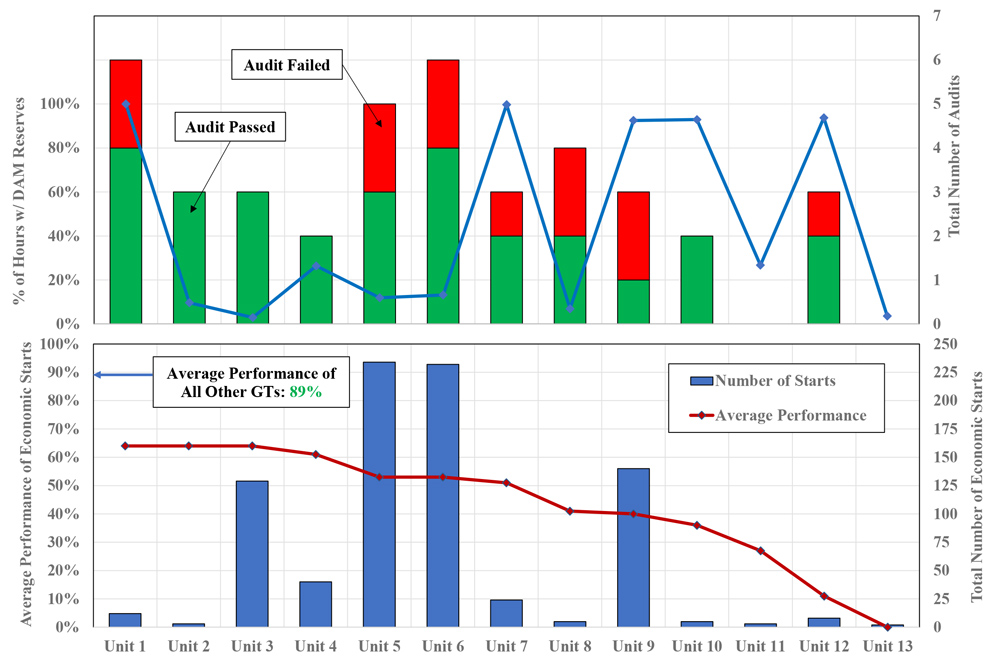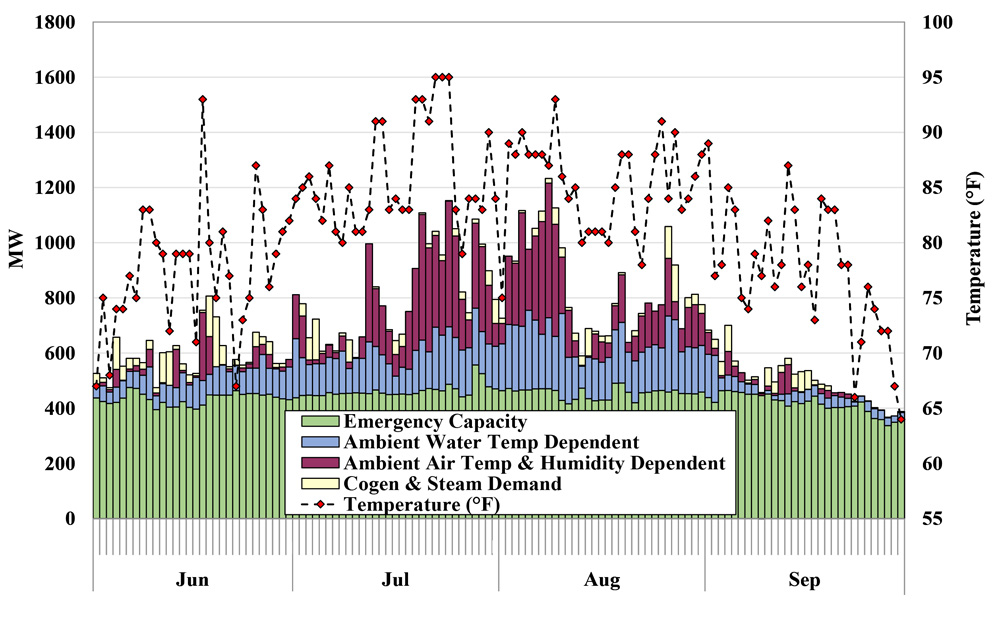NYISO is qualifying generation units for meeting their reserve requirements even though they fail to provide adequate reserves during normal market operations, the ISO’s Market Monitoring Unit told stakeholders Tuesday.
Speaking to the Installed Capacity/Market Issues Working Group, Potomac Economics’ Pallas LeeVanSchaick said NYISO is using capacity accreditation rules that may be awarding excessive accreditation to several gas generators. The ISO should re-evaluate its reserve auditing procedures for gas turbines to be more responsive to normal market operations and improve capacity accreditation test requirements to account for peak summer conditions, he said.
The Monitor’s third-quarter report on the NYISO markets, released last month, found that the ISO is conducting more 10- and 30-minute non-synchronous reserve pick-up (RPU) audits but has failed to disqualify gas turbines that performed poorly.
 Gas turbine audits show inability to accommodate normal reserve requirements. | Potomac Economics
Gas turbine audits show inability to accommodate normal reserve requirements. | Potomac Economics
Potomac studied the 13 worst performing gas turbines; despite many of them being consistently used by the ISO, they regularly fail to achieve performance levels even close to the 89% average of all other gas turbines.
Kevin Lang, partner at Couch White, asked why Potomac believed the ISO was not acting on generators that had performed poorly in audits.
LeeVanSchaick responded that “NYISO has the authority to do that … but it is not clear to us why they have not been disqualified.” Potomac will “monitor this because there’s inefficiency in continuing to compensate resources for providing reserves when they cannot perform.”
According to the report, on days when peak load surpasses 28 GW, an average of about 1,060 MW of installed capacity from fossil fuel and nuclear generators was functionally unavailable during the quarter because of above-average temperatures.
 Functionally unavailable capacity from generators during peak conditions | Potomac Economics
Functionally unavailable capacity from generators during peak conditions | Potomac Economics
Emergency generators dispatched by NYISO during peak load may overestimate their available capacity and receive improper accreditation because these units’ dependable maximum net capability (DMNC) tests, which calculate the gross sustained net output of a generator, fail to capture ambient water temperatures, LeeVanSchaick said.
The audit results suggest “that there is a tendency to over-credit resources that are impacted by ambient conditions,” he said. On peak summer days, “there is capacity that, although qualified, is not as effective as other capacity in terms of providing reliability,” meaning “some units are going to be less available at peak times.”
Howard Fromer, who represents the Bayonne Energy Center, asked whether Potomac had begun discussions with NYISO to adjust capacity accreditation procedures or rules for the impacted resources.
LeeVanSchaick said that Potomac “certainty recommends NYISO looks at these categories in the context of capacity accreditation efforts.” (See “Capacity Accreditation,” NYISO Justifies Unpopular 10-kW DER Aggregation Min. Requirement.)
NYISO energy markets were competitive throughout the quarter, according to the report. Energy prices increased across all zones because of both higher congestion in the Central-East interface and emissions costs, and capacity prices fell because of lower installed reserve margins and peak load forecasts, which helped offset increased spot prices.



